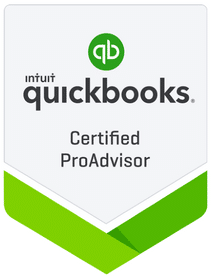- Patrick Roney
- (877) 503-8607
Follow Us :
Follow Us :
Proledge
April 12, 2010

If you want to outsource your bookkeeping function, don’t fall into the temptation of delegating the whole thing to your bookkeeper and turn it into a black box. That’s the best way to let bookkeeping services costs creep up. It has nothing to do with your bookkeeper taking advantage of you. It’s just that bookkeeping services can’t be performed efficiently without some form of proactive involvement form the business owner.
Small business owners decide to outsource their bookkeeping for many different reasons ranging from “I’m too busy to manage the books” to “I need QuickBooks help”, from “I won’t scale if I keep doing the books” to “I really don’t know enough about accounting”.
All these reasons are very valid, but whatever your motivation to outsource bookkeeping services is, keep in mind that you shouldn’t wash your hand of bookkeeping completely. To operate efficiently, the bookkeeper needs directions and feedback from you.
Let me describe the profile of a business owner who gets the best out of her bookkeeper:
This client is a bookkeeper’s dream. Not all business owners can fit this profile , nor need to, but it is important to understand that the closer you are to this profile, the more valuable insight you’ll have into your books and the more efficient your relationship with your bookkeeper will be.
Let’s take the other extreme. Let’s assume that you are a bookkeeper and that your client has never opened QuickBooks before, doesn’t care about QuickBooks and doesn’t know much if anything about accounting. The only reason your client hired you is to have something ready to hand off to the CPA at the end of the year. Here is what is likely to happen:
Outsourcing bookkeeping often makes a lot of sense, but there is a right way to do it and a wrong way. Always stay in control and identify your proper level of involvement. Don’t micro-manage your bookkeeper, but stay closely in tune with what he/she’s doing. It’s all a question of balance.


Fill out the form below to sign up to our Blog Newsletter and we’ll drop you a line when new articles come up.
Bookkeepers.
Professional. Affordable.
ProLedge is a bookkeeping services firm.
Copyright © 2024 All rights reserved.
Hello. Can we help you?